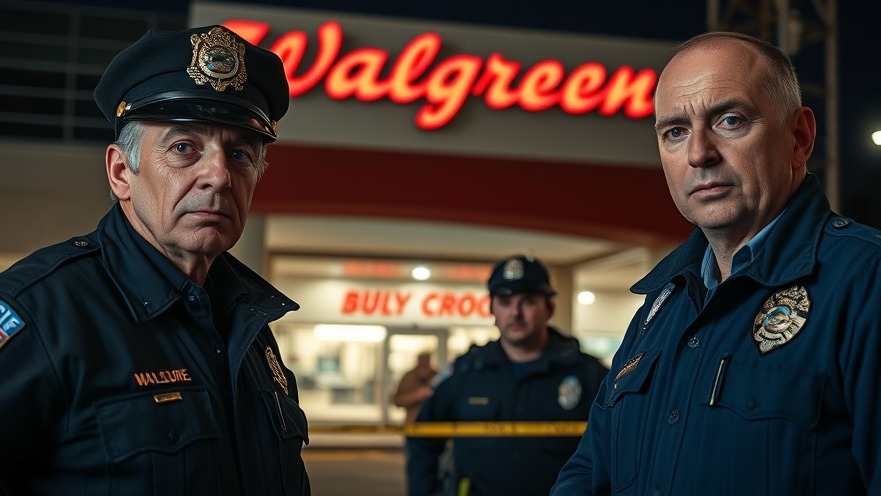
Trauma and Triumph: The Story of Lydia Kaiser
The recent Annunciation Church shooting in Minneapolis left a profound impact on the community, but the exemplary bravery of 12-year-old Lydia Kaiser—a young girl who shielded a fellow student during the attack—stands out in the aftermath. After being hospitalized with injuries, Lydia has now been released from Children's Minnesota, marking a crucial milestone in her recovery. Not only does her tale embody the innocence juxtaposed against a backdrop of violence, but it also highlights the resilience of youth in the face of adversity.
A Community's Response to Tragedy
The response from the local community has been overwhelmingly supportive, with many rallying around the victims, particularly Lydia. Community vigils and fundraising efforts have sprung up to help the families affected, highlighting a collective desire to heal and support one another in these troubling times. Vice President JD Vance and Second Lady Usha Vance's visit to Lydia and her family symbolizes national attention and compassion extended towards the incident, encouraging dialogue about the broader issues surrounding gun violence and school safety.
Understanding the Larger Context of Gun Violence
Lydia's story is not an isolated one; it reflects a disturbing trend in the United States where educational environments have increasingly become grounds for violent incidents. Data shows that over the last decade, school shootings have led to heightened discussions on policy reforms regarding gun control and mental health support for students. Advocates emphasize that addressing these root causes is critical for preventing similar tragedies in the future.
Healing and Hope: The Path Forward
As children like Lydia recover, the journey towards robust community healing begins. Mental health services for both victims and witnesses of such traumatic events are essential for promoting long-term recovery and wellness. Organizations nationwide are doubling efforts to provide resources tailored for young trauma survivors, underscoring the importance of emotional and psychological support mechanisms during the recovery process.
Community Solidarity and Action
The act of one individual can spark a wave of solidarity. Lydia’s selfless act in shielding a younger student has not only inspired her peers but also created discussions regarding how communities can come together to proactively address violence and instill a culture of safety and responsibility. Schools are encouraged to implement programs that focus on conflict resolution and peer support, fostering environments where students feel empowered to look out for one another.
Legislative Implications and Future Trends
As the nation reflects on Lydia's condition, lawmakers are considering further action on legislation aimed at preventing gun violence. Recent discussions in Congress have centered around re-evaluating gun control laws and enhancing security protocols in schools. Future trends indicate a necessary shift towards integrated safety strategies that involve parents, teachers, mental health professionals, and law enforcement in collaborative efforts to protect children.
Lydia Kaiser’s recovery journey from this tragic incident is a complex interplay of personal healing and broader societal reflection. It offers a platform to address crucial issues regarding safety in schools while fostering a sense of community resilience. As healing progresses, both the impact of individual actions and the importance of collective efforts will shape a safer environment for future generations.
To stay updated on ongoing discussions and the legislative changes surrounding school safety and community support initiatives, engage with local advocacy groups and stay informed on policy shifts. Community action and awareness are key to fostering significant and lasting change.
 Add Element
Add Element  Add Row
Add Row 



Write A Comment